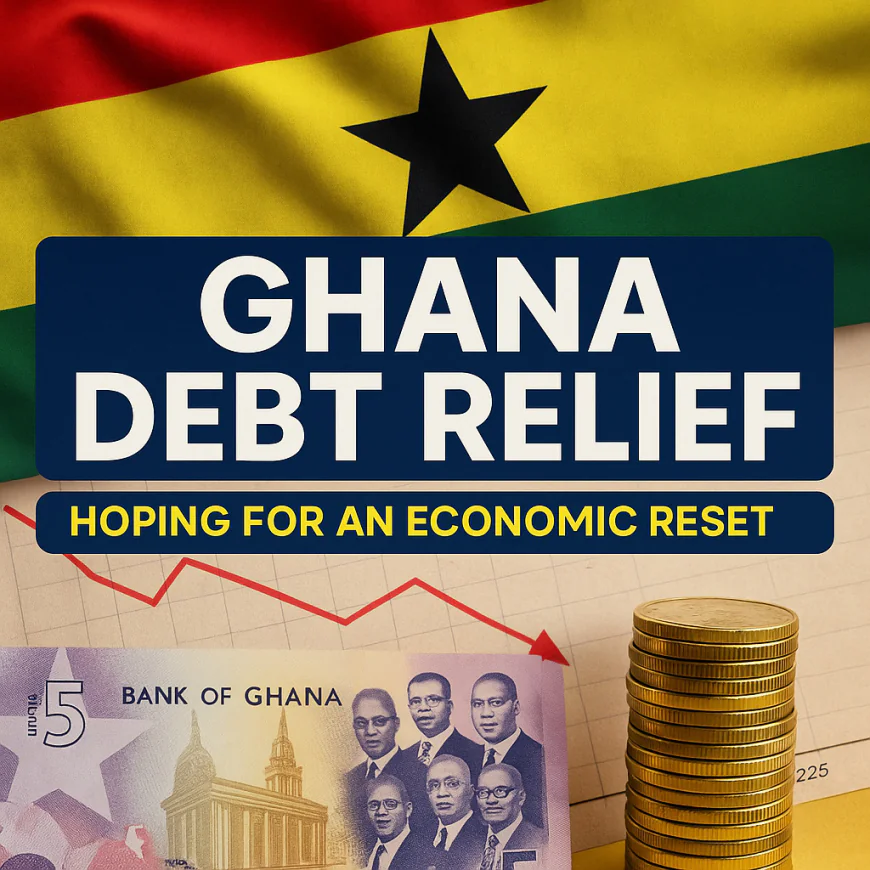Ghana Gets $2.8B Debt Relief - Could This Be the Breakthrough Its Economy Needs?
Ghana just secured $2.8 billion in debt relief from global creditors could this mark the beginning of its economic reset? Explore what this IMF-backed deal means for fiscal stability, investor confidence, and the nation’s growth prospects in 2025 and beyond.

Ghana’s parliament just approved a $2.8 billion debt relief deal with 25 creditor nations including China, France, the U.S., and the U.K. as part of its broader $3 billion IMF bailout package
This isn’t just fiscal maneuvering - it’s potentially Ghana’s reset moment, easing a massive debt burden and laying groundwork for economic restructuring. But real impact depends on whether this relief transforms into strong fiscal discipline and smart investment.
1. Short-Term Relief, Big Breathing Space
- Payments have been deferred to 2039–2043
- Interest rates slashed to 1–3%, far below market rates
This frees up billions in public funds over the next decade, easing pressure on the cedi and stabilizing government spending
2. IMF Bailout Conditions - A Double-Edged Sword
Ghana’s debt restructuring is linked to a $3 billion IMF facility signed in 2023.
Upside: Encourages fiscal discipline, inflation control, and reforms.
Risk: Could saddle the economy with austerity measures if programs don’t match Ghanaian priorities.
3. Investor Confidence and Market Access
Consent from China, the U.S., and EU governments sends a clear signal:
- Debt sustainability is achievable
- Ghana is once again investible
This opens doors to foreign direct investment and better borrowing terms.
4. What Still Needs to Happen
To truly benefit:
1. Reform public sector wages and pensions
2. Prioritize capital spending on infrastructure
3. Make sure freed funds benefit citizens - not go to waste
Without discipline, the relief will feel like a lifeline instead of a launchpad.
Forward-Looking Insight
Ghana’s debt deal buys time the question is how the country spends that time:
- Does it invest in growth sectors, reset economic fundamentals, and build fiscal buffers?
- Or does it slip back into the same debt rhythms and miss the moment?
Are Ghana’s leaders prepared to use this debt relief as a tool for transformation - or will it just delay the next crisis?
Share your thoughts and tag someone you think understands what comes next.


